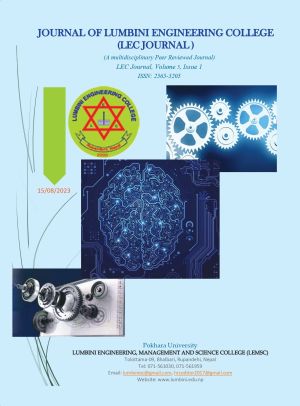Unlocking the Power of Flipped Learning: Revolutionizing Science Education
DOI:
https://doi.org/10.3126/lecj.v5i1.60115Keywords:
Flipped learning (FL), Science learning (SL), emerging trends, challenges, student engagement (SE)Abstract
Flipped learning (FL) is an increasingly popular approach in SL that shows great promise for improving student learning outcomes and engagement. This review article explores the potential benefits and future research directions in FL in science learning (SL). Emerging trends in FL include the use of interactive video tools, mobile learning, and virtual and augmented reality technologies. Future research could investigate the effectiveness of these tools in enhancing SE and learning outcomes in SL, as well as their impact on student motivation and self-regulated learning (SRL). The article presents a comprehensive literature review that summarizes the previous research findings and highlights the effectiveness of FL in SL. However, implementing FL presents unique challenges, such as the need for access to technology and the time commitment required for both students and teachers. The article provides best practices for implementing FL in SL, which includes a focus on student-centered learning, interactive activities, and ongoing assessment. FL has the potential to revolutionize SL and improve student outcomes. It is a flexible and dynamic approach that can be adapted to different science disciplines and learning contexts. Therefore, the article emphasizes the need for further research in FL and the importance of its implementation in SL.
Downloads
Downloads
Published
How to Cite
Issue
Section
License

This work is licensed under a Creative Commons Attribution-NonCommercial 4.0 International License.
This license allows reusers to distribute, remix, adapt, and build upon the material in any medium or format for non-commercial purposes only, and only so long as attribution is given to the creator.




